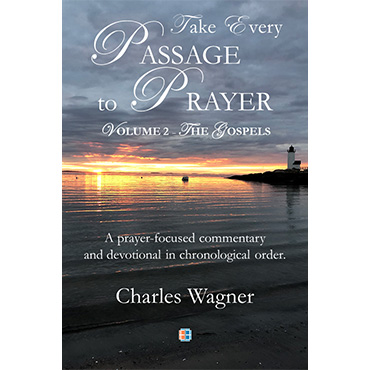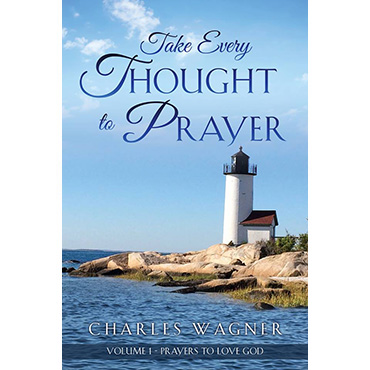The Gramazin Blog

Jesus Teaches The Parable of the Lost Son
Take Every Passage to Prayer - Volume 2, The Gospels
Saturday August 31, 2024
Luke 15:11-32
Father, thank You for the abundant generosity You have extended to me. Please help me to be always grateful. Father, with the help of the Holy Spirit, please keep me from acting on my feelings. Help me not to trust them. Instead, please make me someone who is self-controlled, disciplined, wise, and reasoned. Father, please help me to learn the lessons that You teach me during hard times. Father, I run to You now and ask for the forgiveness of my sin. Help me to stop rebelling from You but to live a life of continuous obedience to Your Word. Father, above all things, I want to walk and talk with You every hour of my life. Be my God and I will be Your servant. Father, make my soul useful for the building of Your Kingdom. Amen
Father, in this passage Jesus shares with us the parable of the “prodigal” son. In short, a rebellious son, the youngest of two, demands his inheritance from his father. He travels to a distant land and wastes all of it on foolish living. When a famine struck the land, the son was starving. He took a job in a field feeding pigs, a truly demeaning job to have in that culture. He thinks of home, knowing his father’s servants are well fed. He returns to home prepared to seek forgiveness from his dad and to ask to be a temporary laborer so at least he can get a meal or two. However, his father celebrates his return. The older brother is jealous and complains to the father. The father concludes the passage saying to his older son that he too his loved, but the family needs to celebrate the restored relationship they both now have with the younger son.
Father, there are many things to learn from this parable:
- You are exceedingly generous to us. You are the generous God who enjoys giving to us abundantly from Your bounty. You are eager to give to Your people the inheritance of the King of kings and the Lord of lords. I am by no means embracing the false doctrine of the “health and wealth” gospel. Believers grow in their faith through hardship. However, You can’t wait until that moment, in the Kingdom of Heaven, when You will pour out all that is good to each and every one of Your children throughout eternity.
- We are ungrateful people. We take all of the good things You give us for granted. We do not thank You. We assume that You will continue to be the great genie, the Santa Claus, who will day in and day out give us not only what we need but often what we want as well. We then take what You give us and run away from You, abandoning You while we enjoy all the gifts that You have given to us.
- People rebel from God without thinking. We know this is true in this parable because the text tells us that later the young man came to his senses. It takes a mature, sober, and wise mind, able to calculate risk, cost, and consequence, to avoid making life-altering foolish decisions. Our post-modern 21st century culture tells us that our feelings are supreme, and that reason (and truth) should no longer be a factor in our decision making. Our culture is inviting us to step into the same calamity that the younger son walked into in this parable.
- Rebellion destroys. Temptation seems so appealing in the moment. However, when we surrender to it, we experience disaster. Our culture entices us to “do whatever we feel like doing.” When we follow such advice, we often experience addiction, divorce, estrangement, loneliness, conflict, anxiety, insecurity, incarceration, humiliation, shame, injury, illness, and financial loss. When we follow such advice, we often become victims of injustice. Rebellion from You has been the primary cause of death for millions of people throughout history.
- You allow us to suffer the consequences of our rebellion. You are not malicious or evil. You do not delight in our suffering. However, You do lovingly allow us to experience the trouble we get into when we reject Your ways. It is that trouble that wakes us up, shining the light of truth in our eyes that we are not You, and we desperately need You to be our God. It is that trouble which brings us running back to You.
- You are the God who is always eager for our return. Like the father who was searching the fields for his rebellious son, You are continuously scanning our thoughts, feelings, words, and actions in search of any sign of our repentant return to You. I believe that even our slightest thought of penitence is grasped by You and nourished by the Holy Spirit, calling us back home. You are not the God who holds a grudge. You are not the God who refuses to forgive. You are the exact opposite – the merciful and compassionate God who delights in forgiveness and the restoration of our souls.
- Repentance is essential. The father in this story did not search for his rebellious son. He waited for His son to return home. The onus is on us to confess our sin, to humbly repent of our foolish ways, and then to return to You. Had the younger son never decided to return to his father, he would have never been delivered from the hardship he was experiencing.
- It’s all about the relationship. When the son was suffering far away from home, he did not think about the ceiling, walls, and floor of his former home. He didn’t think about the utensils or the furniture. He thought about a person – his dad. It was not a “thing” that would restore him. It was a “person”. We are healed, renewed, refreshed, and restored by a relationship with the King of kings and Lord of lords.
- It is better to be a servant in Your Kingdom than a king anywhere else. A wise man knows it is better to be the least in the Kingdom of God than to be the best anywhere else. The servant in heaven walks on streets of gold while the king on earth walks on streets of concrete.
- Our souls are resurrected. We were dead in our sin, but we have been resurrected to new life in Christ. Heaven considers that worth celebrating with hugs and kisses, music and dancing, and a feast with the best food in heaven. There is intense joy in heaven when a cherished soul finds and embraces the gospel of Jesus Christ.
- We are now ambassadors of Christ. The believer has been clothed with righteousness, the forgiveness and cleansing of sin. The believer has been given the authority and the empowerment of the Holy Spirit to live godly, mature, wise, and honorable lives. The believer has been given a mission to go out and bring to the nations the gospel of Jesus Christ.
Father, what can we conclude about the jealous older brother?
- Broken relationship with his father. Even though he lives with his father, he doesn’t understand his father. If he understood his father’s deep love, he wouldn’t have been surprised by the celebration for the return of his long lost brother. Jesus tells us to love our Father with all of our heart, soul, and mind. The older brother doesn’t grasp this truth.
- He doesn’t love his brother. He is not delighted that his brother has returned home. Instead, the older brother seems to resent his younger sibling. There is a lack of forgiveness. There is a judgmental spirit. There appears to be hate within his heart for his brother. Jesus tells us to love our neighbor as we love ourselves. The older brother has violated this command as well.
- He is ungrateful. He had to be reminded by his father that the father had poured out his love and generosity to him. He hadn’t been treated any less than his brother had been treated. He was just as loved and adored. Apparently, the older son lacked the capacity to be grateful.
- He was legalistic. What did the older son believe was the path to a relationship with his father? Work. Sweat. He was focused on the law, the completion of tasks necessary to keep the farm running. He was not engaged in relationship with his father. He was engaged in a todo list.
- He too needed salvation. The father extended the offer of salvation to the older brother as well, inviting him to come in and join the celebration of his brother’s return. The father seems to understand that his older son’s heart is not right. He wants his son to come in and the people can celebrate his salvation as well.
Amen.







